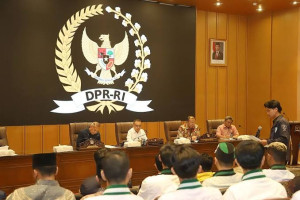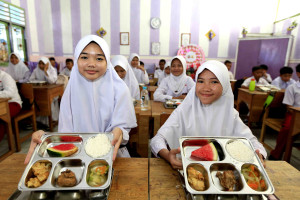East Kutai turns palm oil waste into power electrifying remote villages
The East Kutai Regency Administration is taking proactive steps to harness renewable energy by converting palm oil waste into biogas to fuel power generation − an initiative aimed at bringing electricity to remote villages.
“We will facilitate a partnership scheme between (State power utility) PLN and palm oil companies to utilize palm oil effluent and convert it into biogas,” Arif Nur Wahyuni, Head of Natural Resources at the East Kutai Regency Administration, said in Sangatta on Tuesday, May 7, 2025.
Currently, 22 out of 141 villages in East Kutai remain without access to electricity. The local government sees the untapped energy potential of palm oil waste as a sustainable solution to close this gap.
Wahyuni emphasized that East Kutai has vast oil palm plantations, generating substantial waste that, if left unmanaged, can harm the environment. Poor waste handling not only threatens ecosystems but also contributes significantly to atmospheric methane emissions.
“As the central government continues to phase out fossil fuels, the future lies in green energy − including palm oil biogas. If processed with biodigester technology, methane emissions from palm waste can be captured and used as fuel for power plants,” she said.
Beyond environmental benefits, using biogas offers economic efficiency. However, Wahyuni noted that transitioning to renewable energy is not without challenges.
Joko Pratomo, Biogas and Power Plant Manager at PT Prima Multi Mineral (PMM) in Sangkulirang, outlined key barriers to biogas utilization in East Kutai.
“Not all factories have access to proper biogas processing technology. Major investments and limited human resources are the main hurdles,” he said.
He also pointed to biogas distribution as a technical obstacle. “To sell biogas-based energy to PLN, we need an integrated power grid and supportive pricing regulations. Unfortunately, not all plants in East Kutai are near the national electricity network,” he added.
Despite the hurdles, the initiative highlights a promising path forward − where waste is no longer a burden but a resource, and sustainable energy can power rural progress.
Tag
Already have an account? Sign In
-
Start reading
Freemium
-
Monthly Subscription
20% OFF$29.75
$37.19/MonthCancel anytime
This offer is open to all new subscribers!
Subscribe now -
Yearly Subscription
33% OFF$228.13
$340.5/YearCancel anytime
This offer is open to all new subscribers!
Subscribe now







